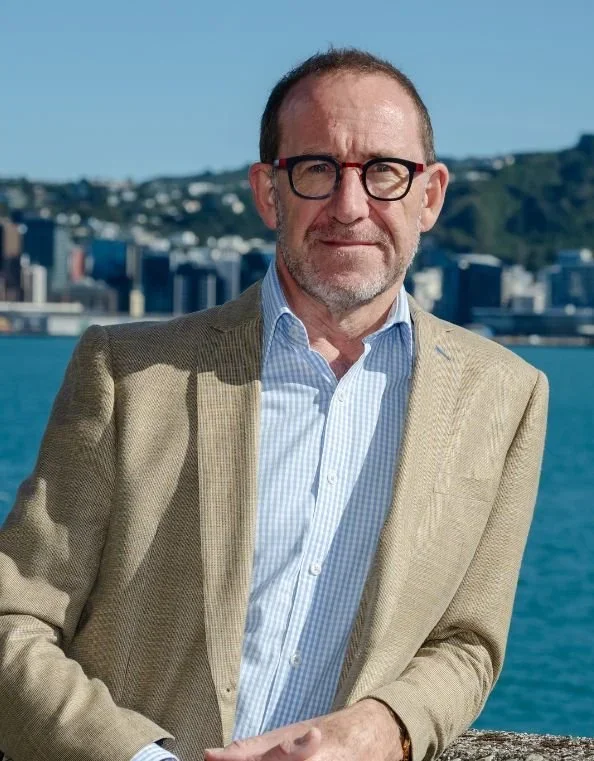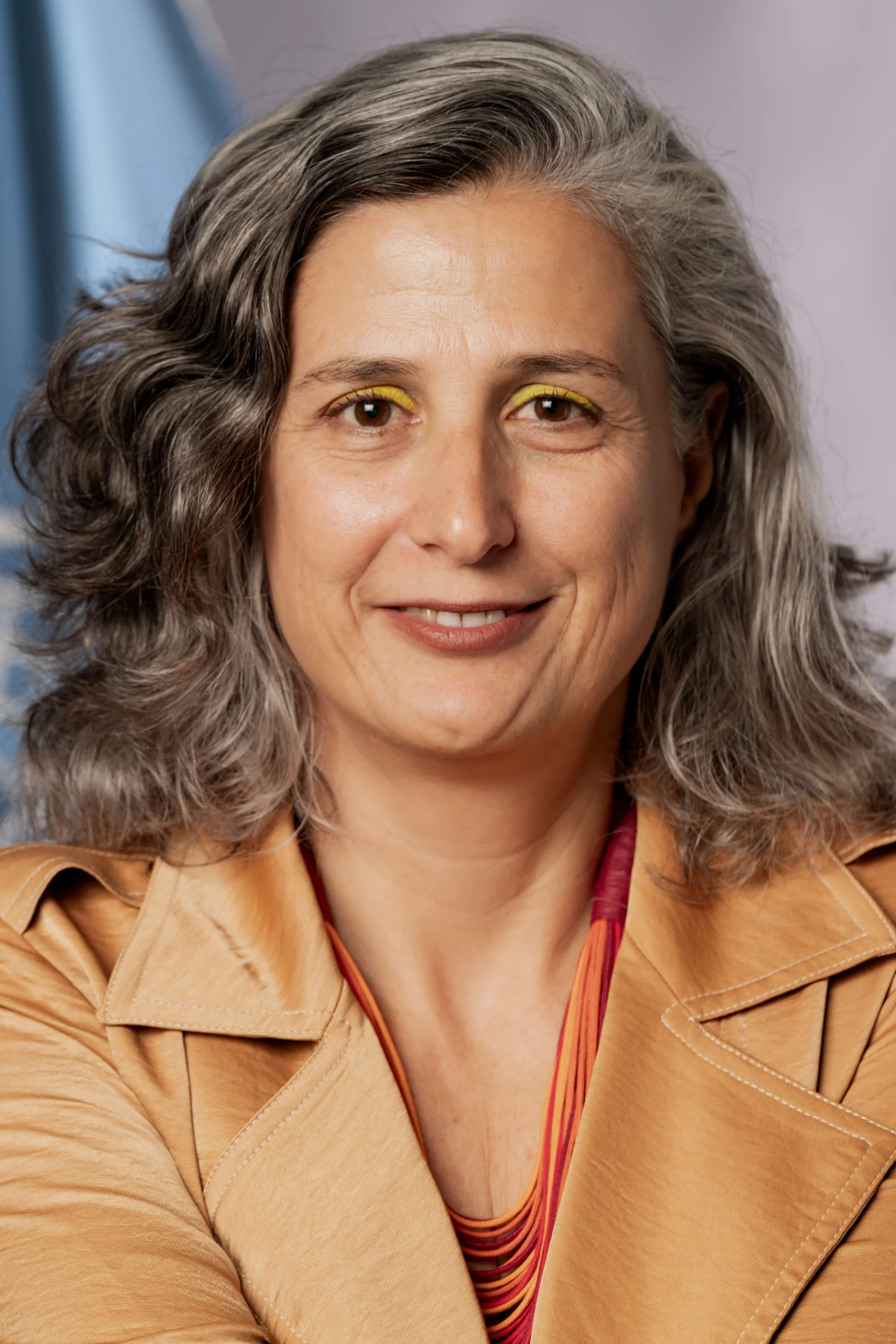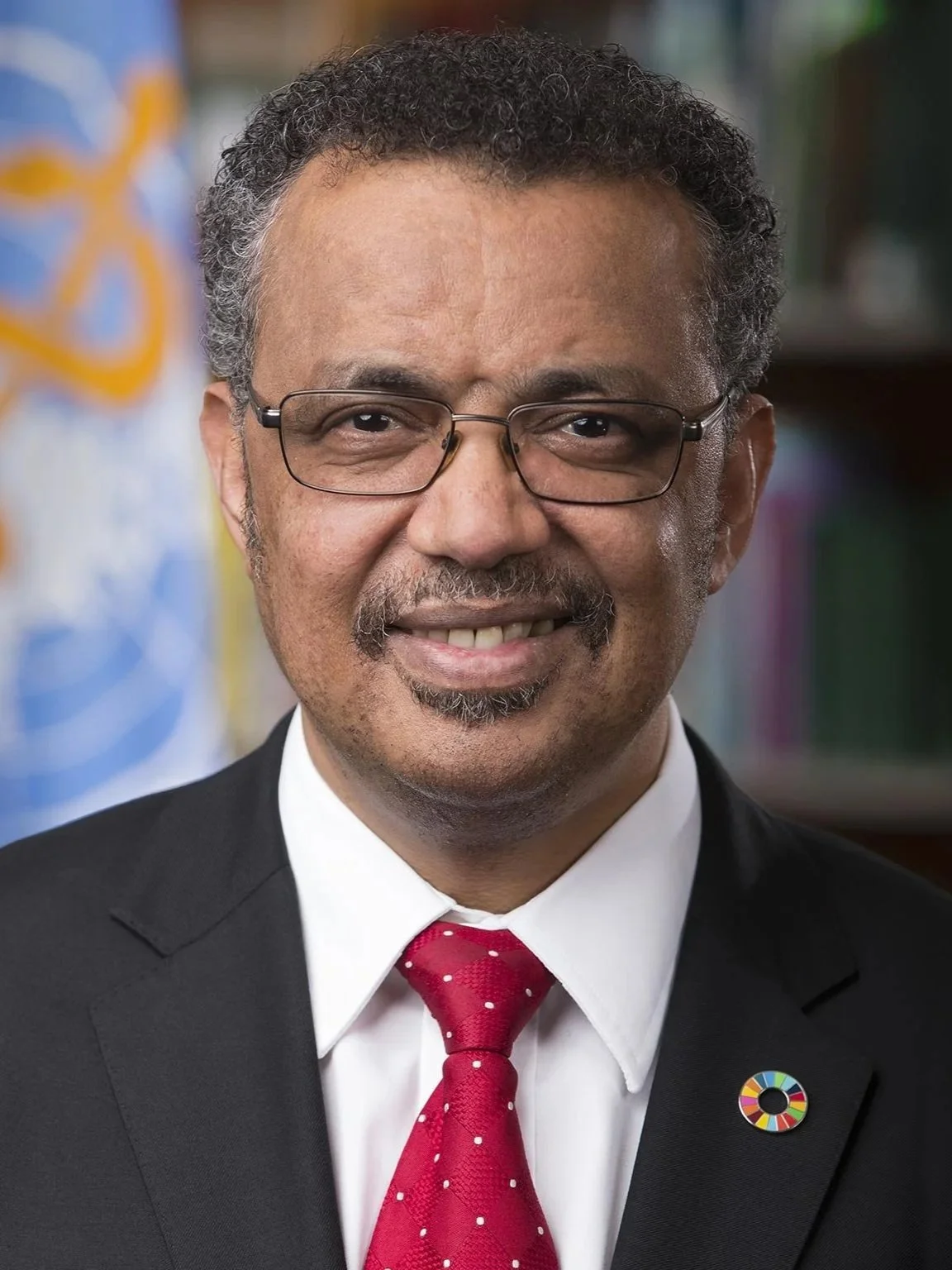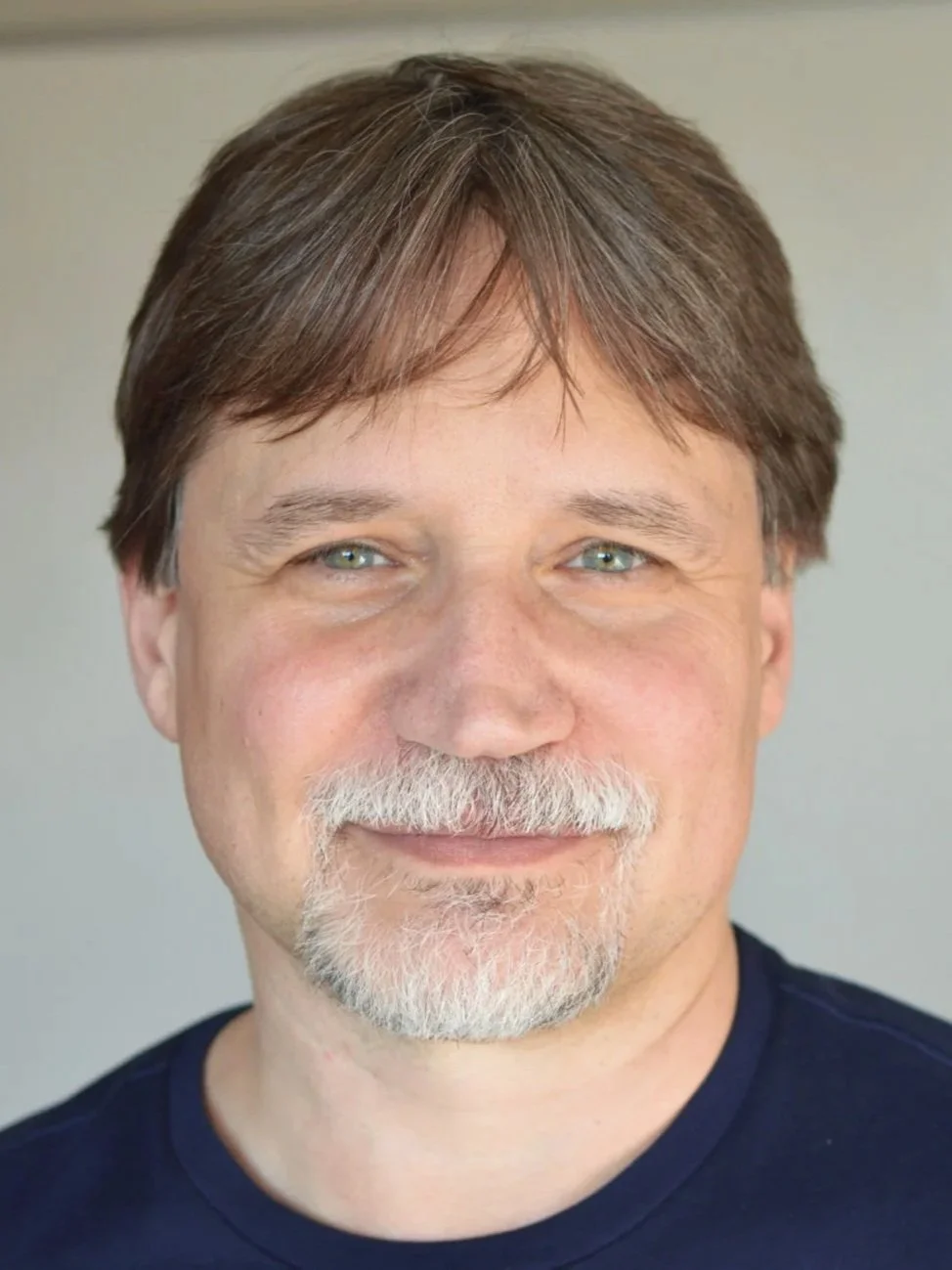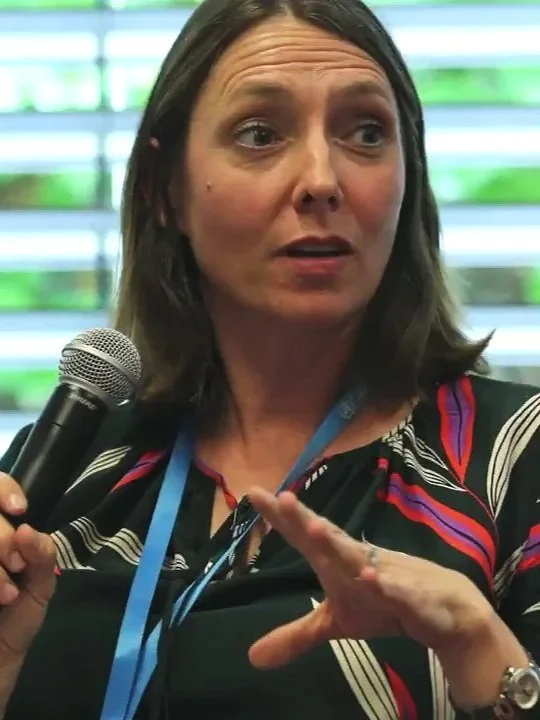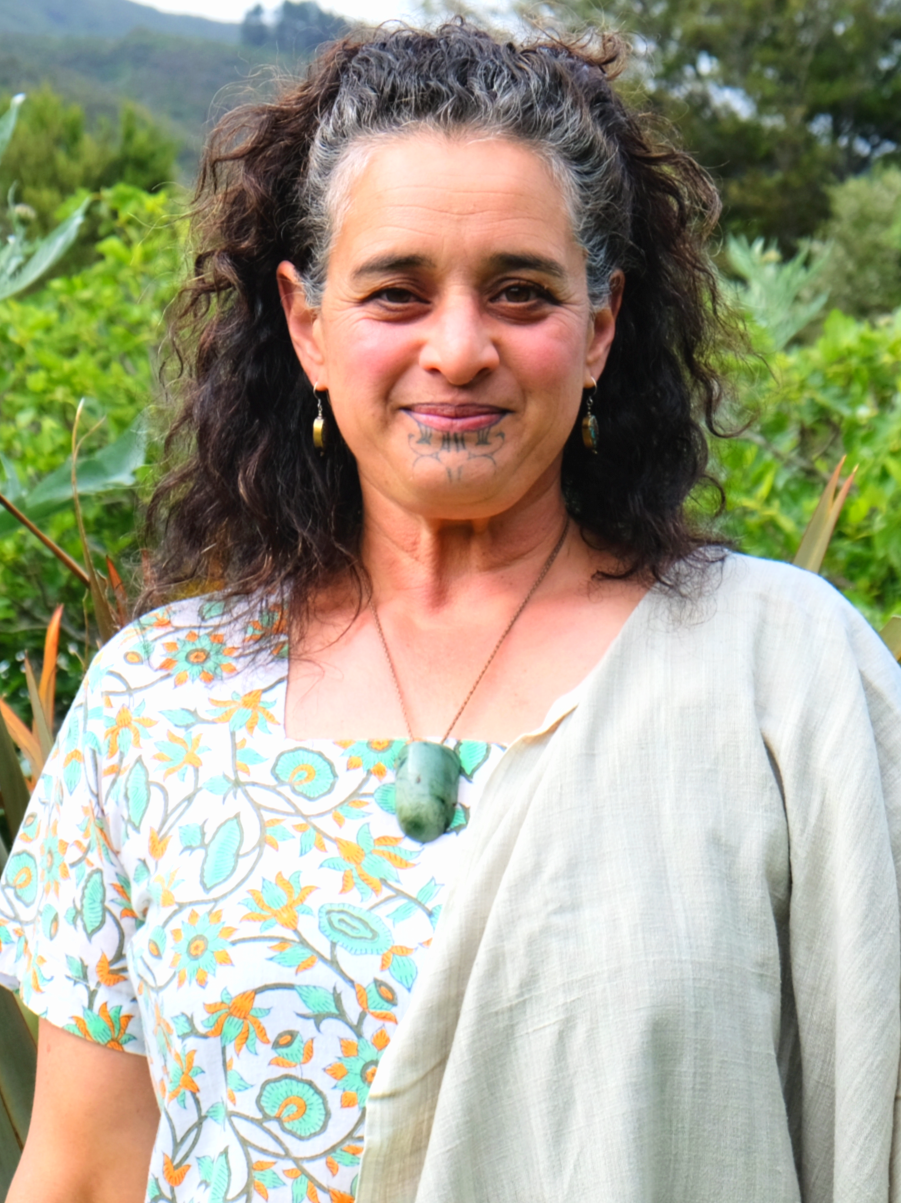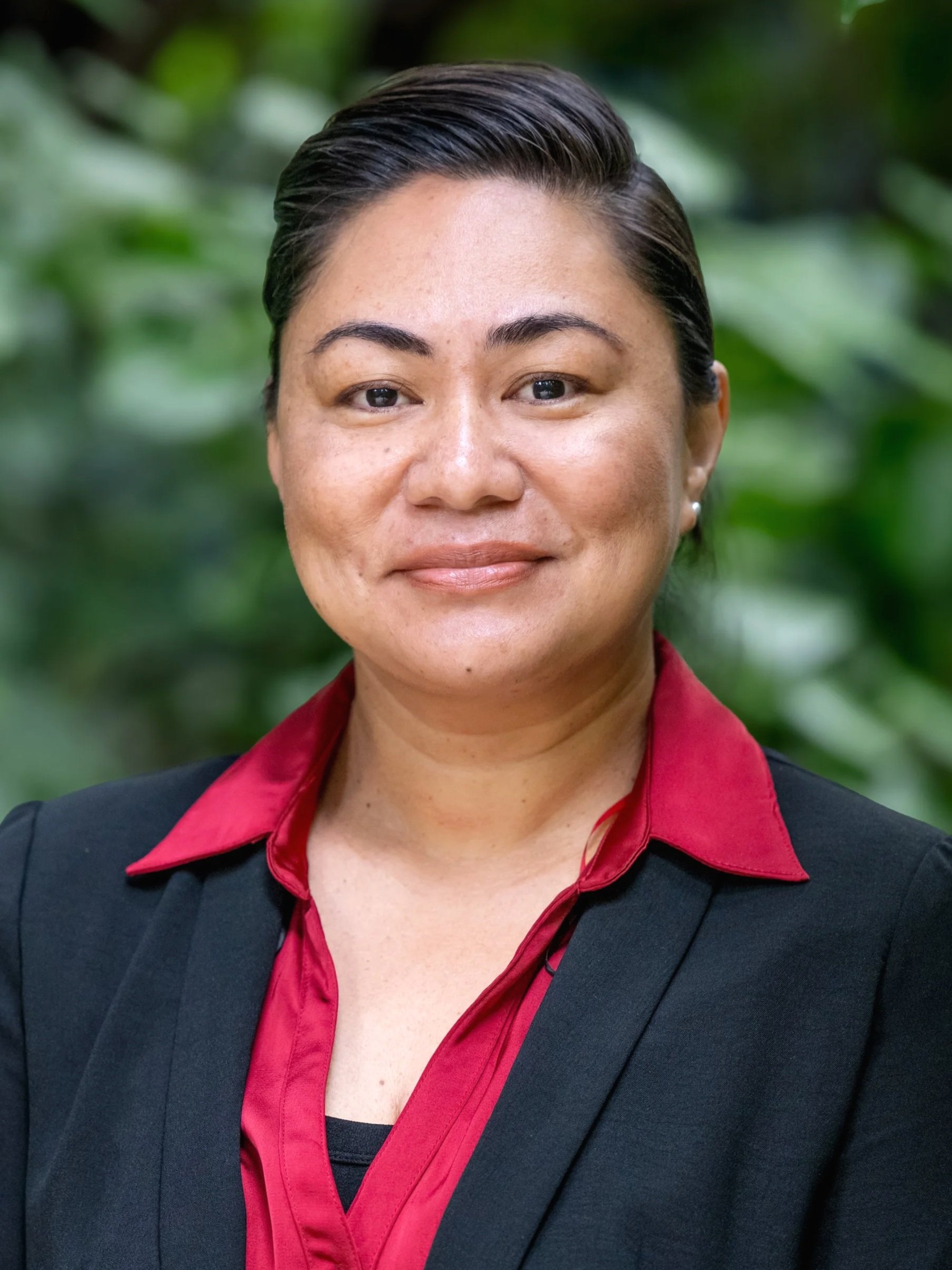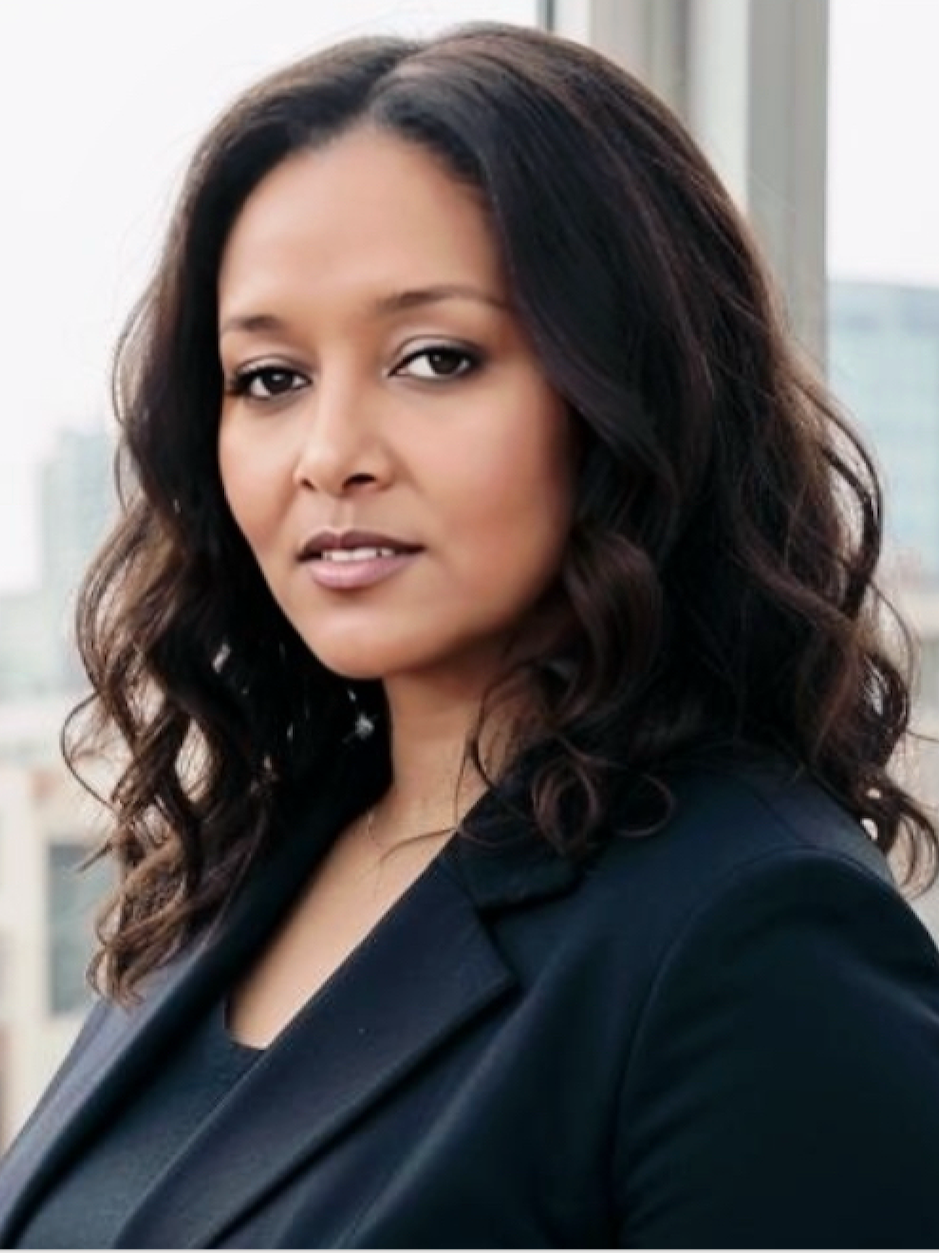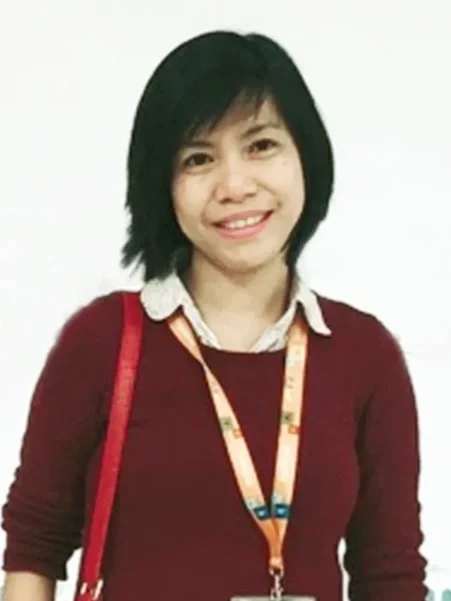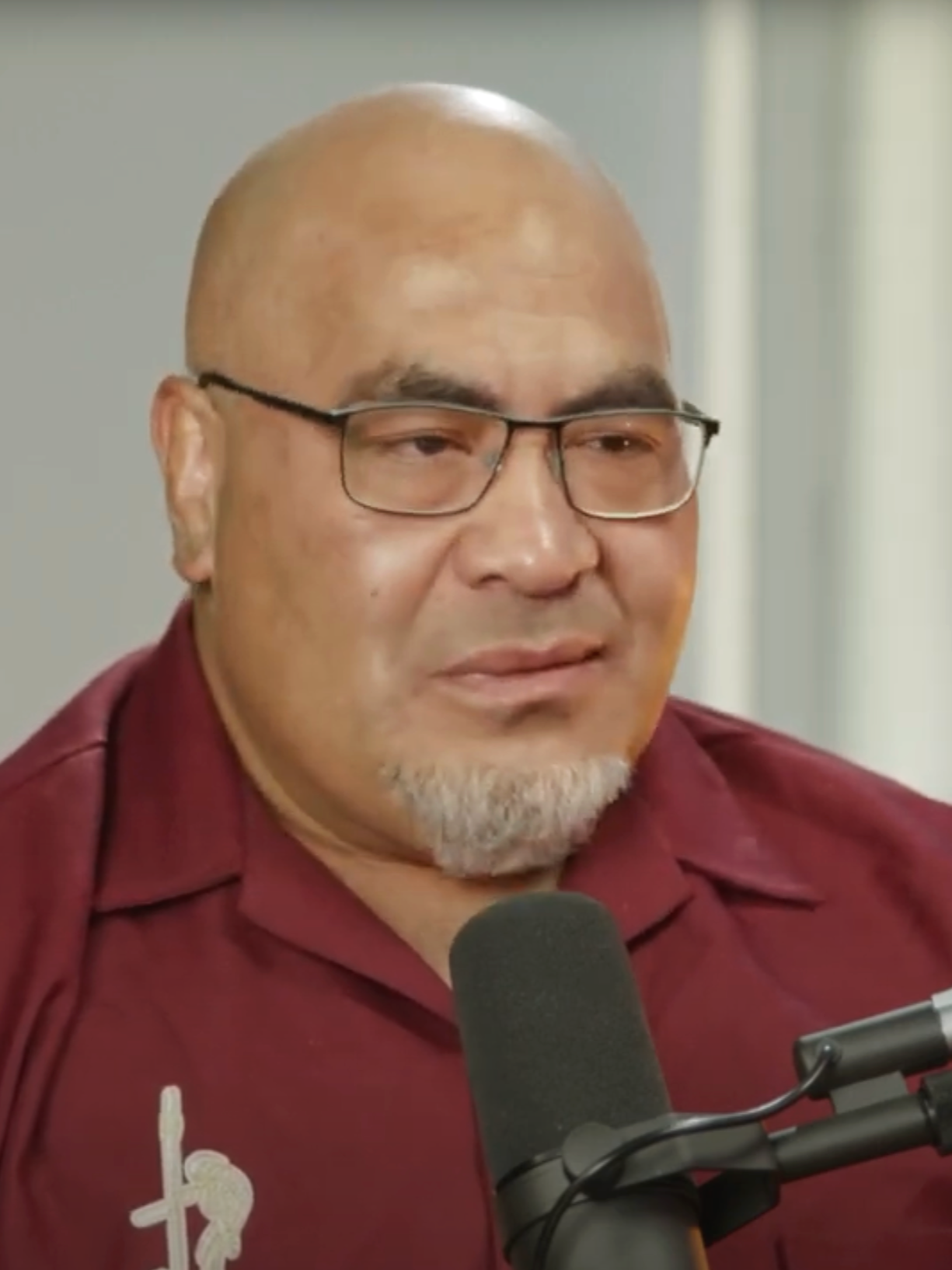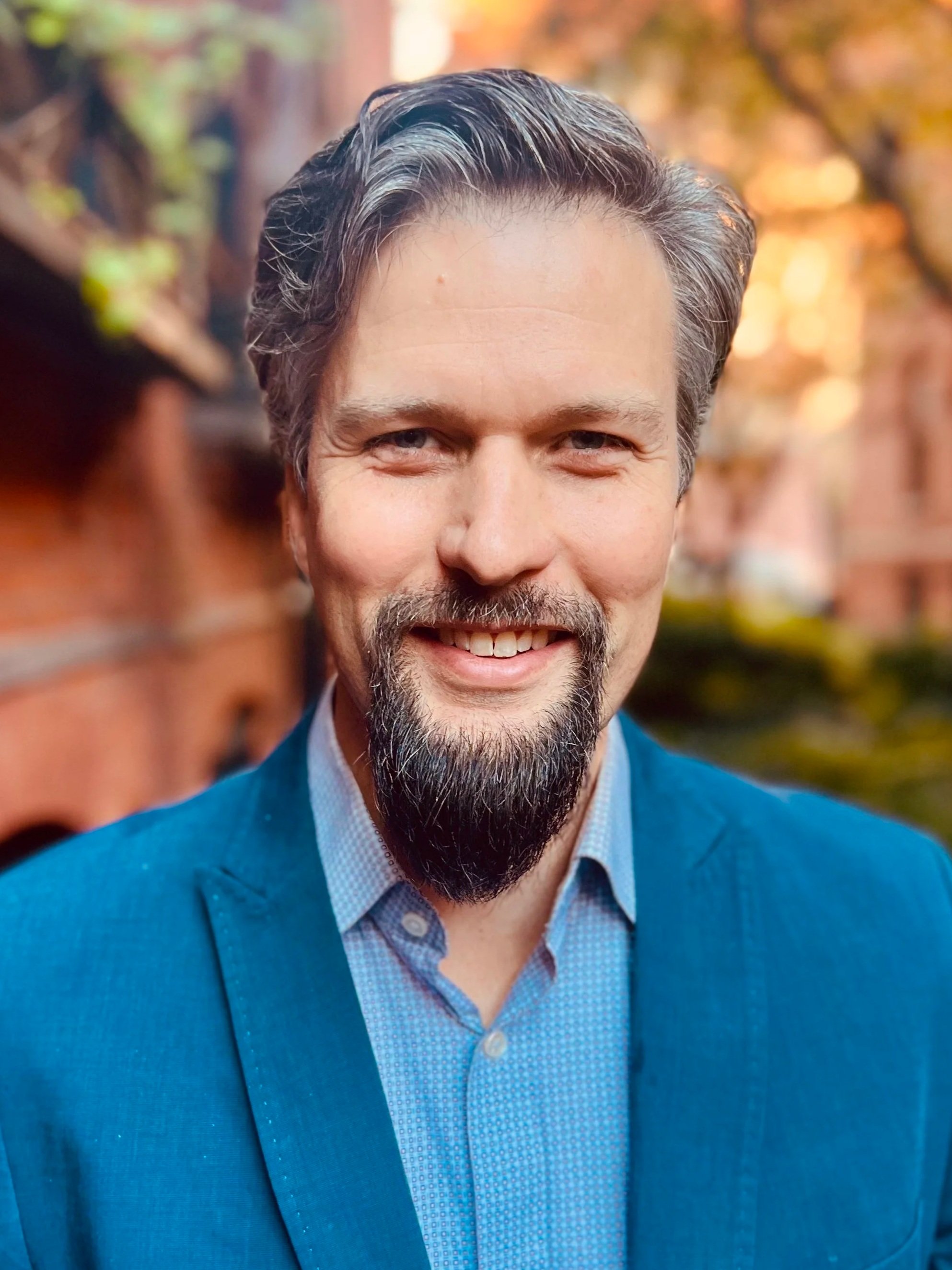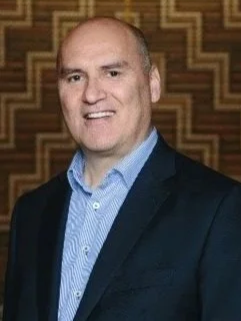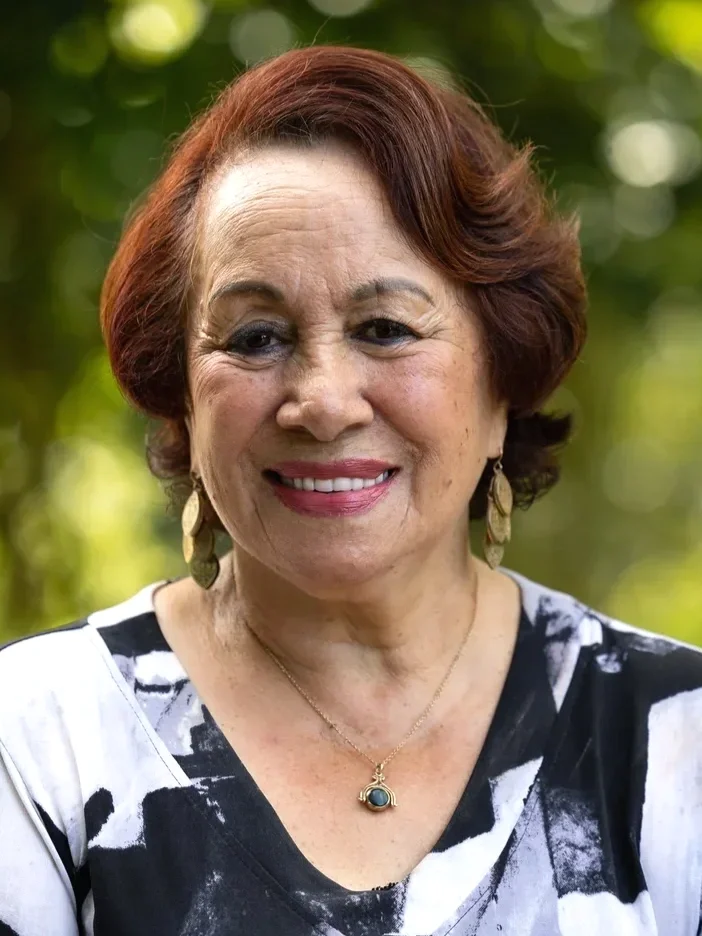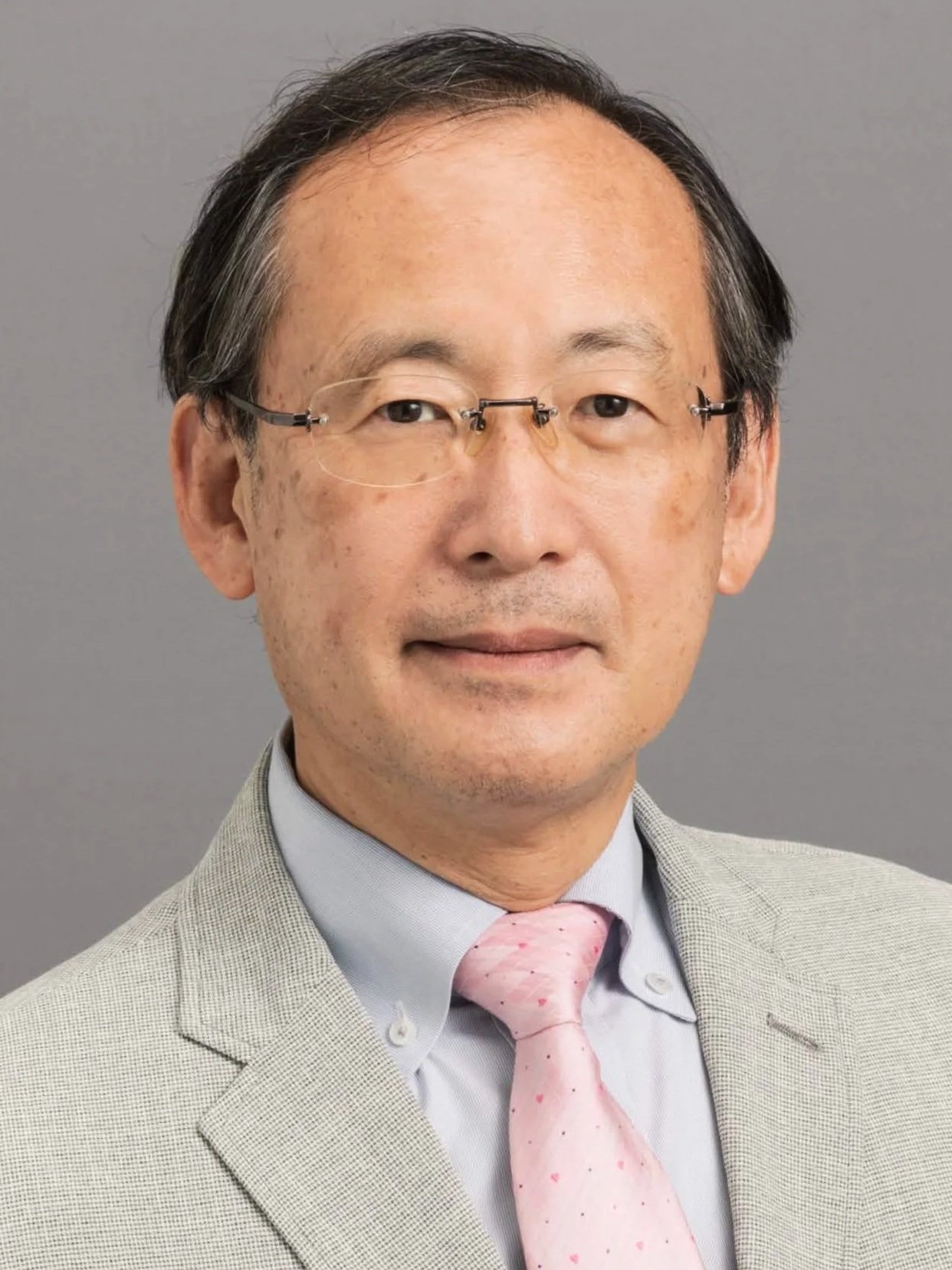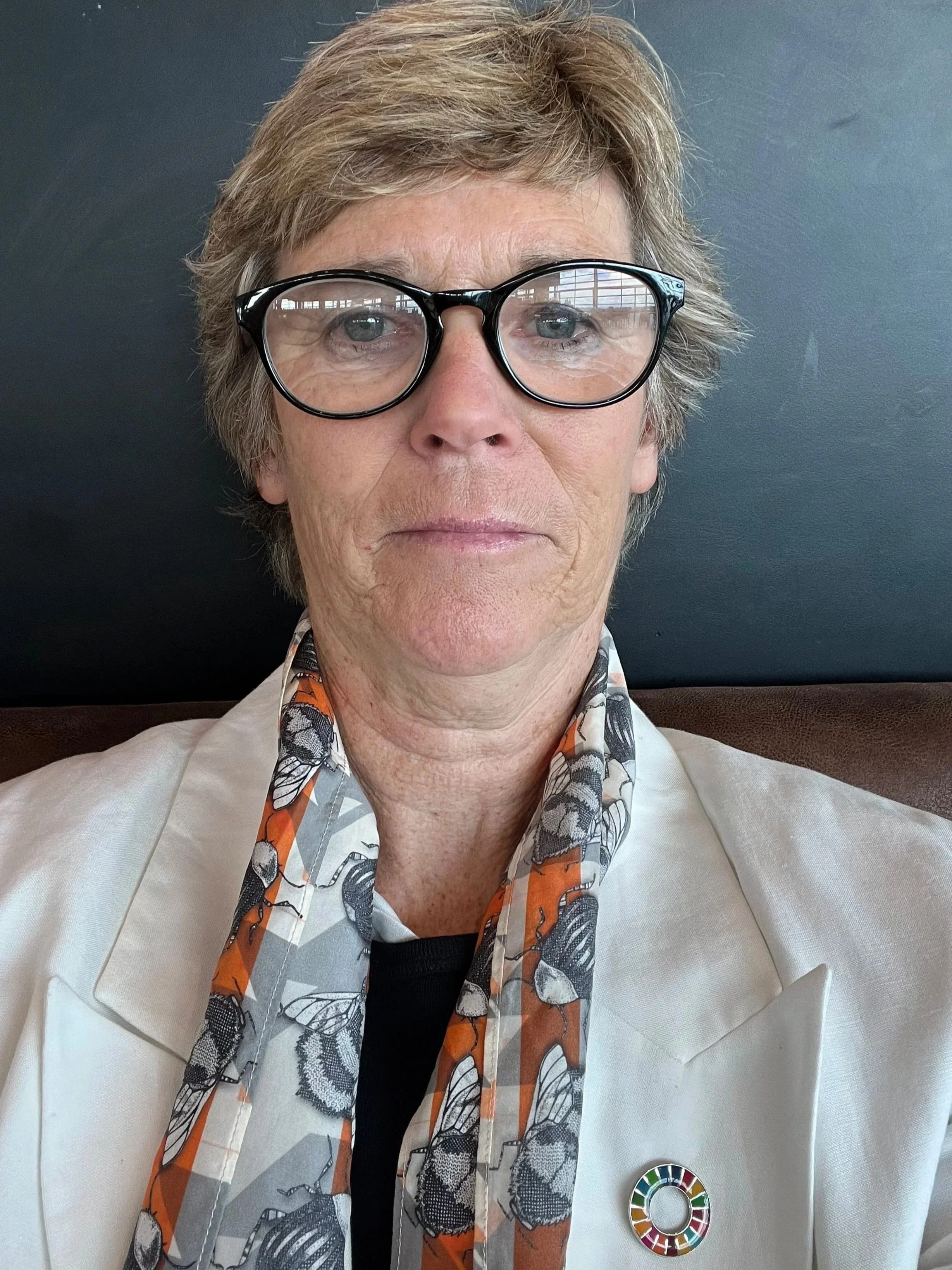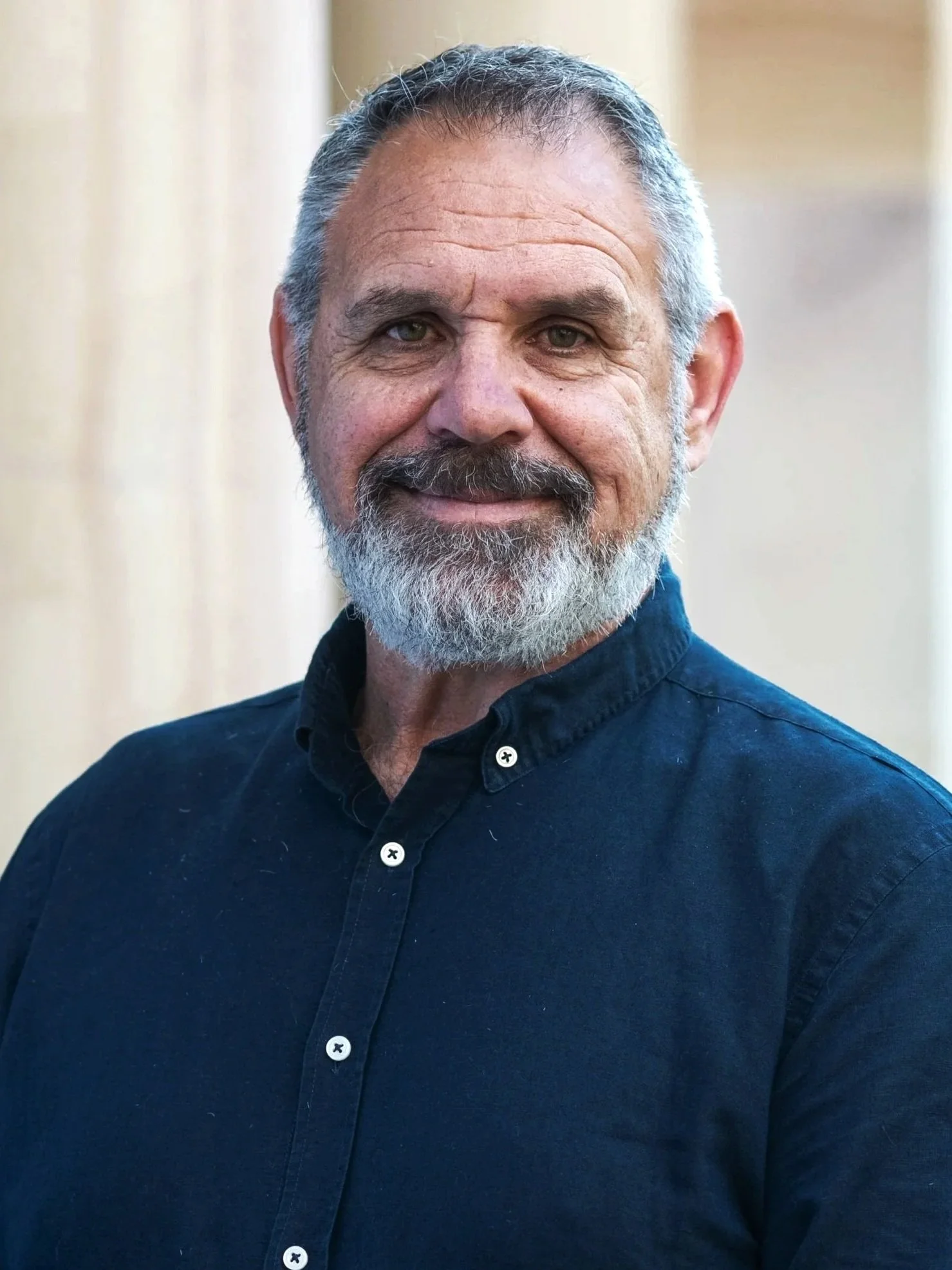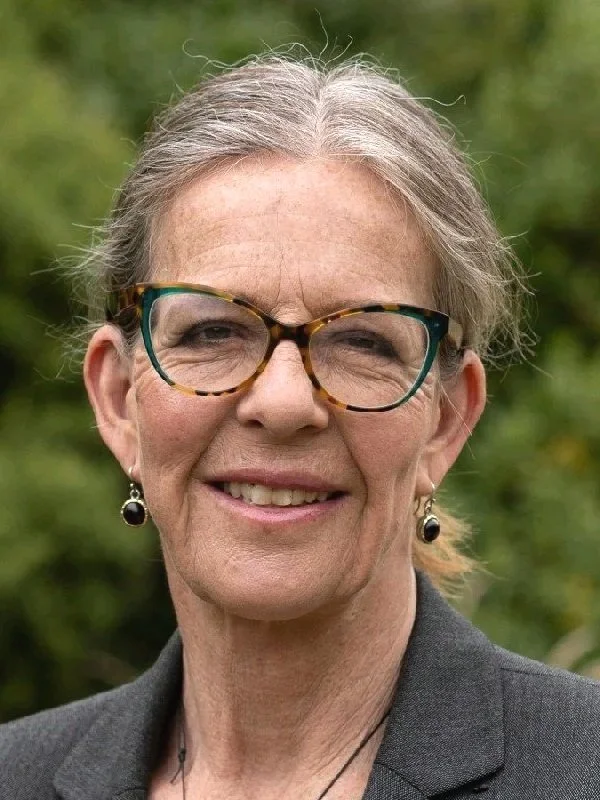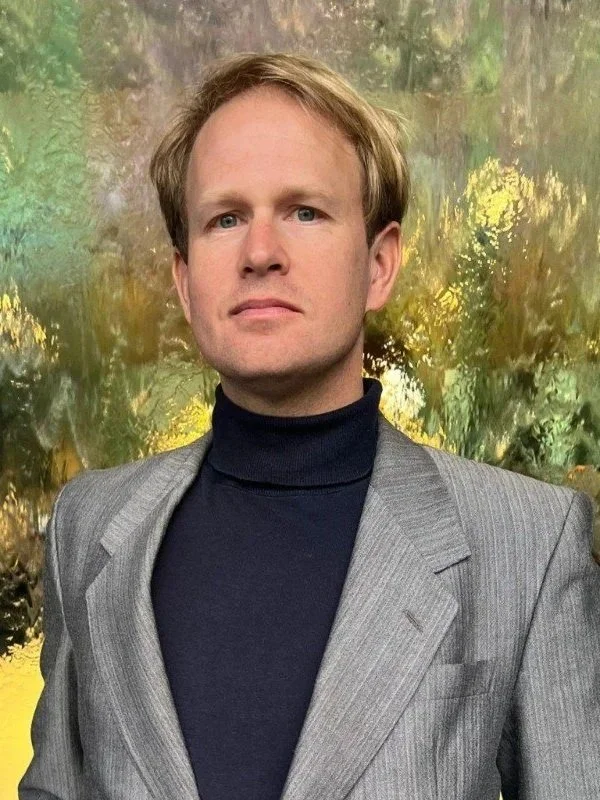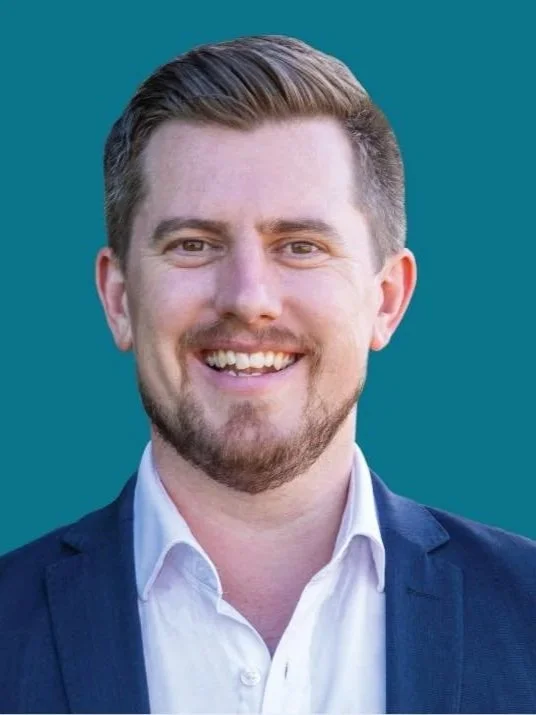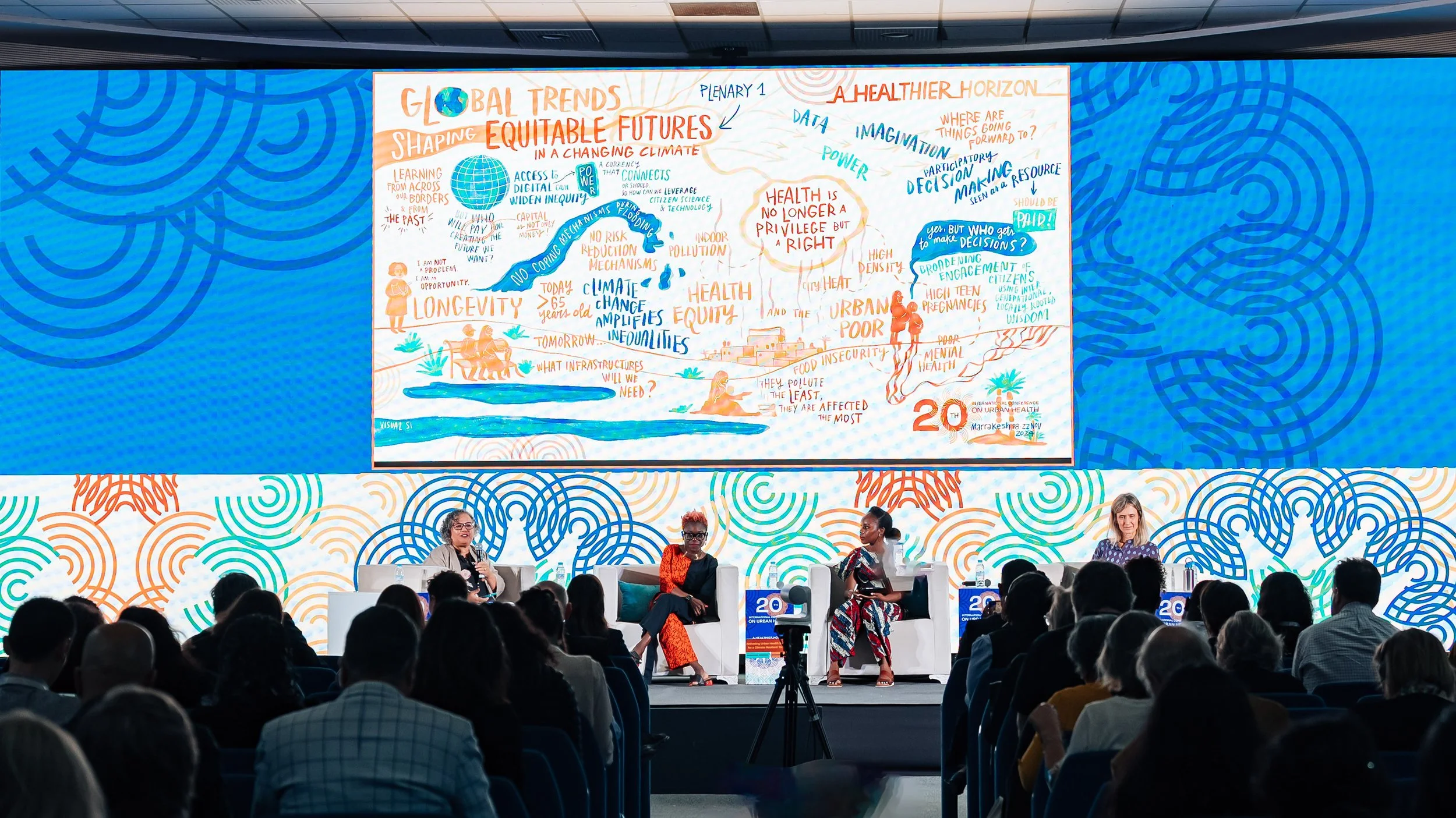
speakers
ICUH 2025 has the honor of hosting prestigious thought leaders from around the world to convene in Wellington to tackle some of the most prevelant issues in global urban health. We are proud to host five distinct plenary sessions throughout the conference week that will feature expert panels, poignant keynote moments, and interactive discussions that follow our five conference themes.
This year, we have developed an additional important moment: a unique government roundtable that will convene national and local government leaders from across Aotearoa New Zealand and their international counterparts to explore together how urban policy and governance can drive health, equity, and climate resilience in our cities.
Together, these sessions will highlight diverse perspectives, showcase innovative solutions, and spark dialogue across disciplines, sectors, and regions to inspire actionable strategies that bridge local experience with global impact.
Additional speakers to be announced soon!

Mayor’s welcome
-
I was elected Mayor of Wellington City, the capital of Aotearoa New Zealand, on 11 October 2025.
My commitment is serious leadership and real change at council, and being a Mayor for all of Te Whanganui-a-Tara Wellington.
I’m a lawyer by profession. I’ve also been a union leader, a Labour Party Member of Parliament and senior Cabinet Minister.
I live in Island Bay with my wife Leigh, and our border terrier Harry. We have an adult son.
My priorities as Mayor are:
Getting a firmer grip on council spending to keep rates down.
Making the council more transparent and accountable, with community feedback front and centre when decisions are made.
Investing in our swimming pools and libraries, and protecting our public assets.
Making our city affordable by accelerating housing development and making public transport cheaper and more reliable.
Supporting small businesses, and revitalising Wellington’s economy with more festivals and events.
Fixing the pipes, taking action on climate, and honouring the Treaty of Waitangi.
Co-sponsors welcome
-
Anacláudia Rossbach
United Nations Under-Secretary-General
Executive Director, UN-Habitat
Anacláudia Rossbach of Brazil was appointed Executive Director of the United Nations Human Settlements Programme (UN-Habitat) at the Under-Secretary-General level for a term of four years on 7 June 2024. She was elected by the UN General Assembly following nomination by the United Nations Secretary-General. Ms. Rossbach assumed office on 12 August 2024.
Ms. Rossbach is an economist with more than 20 years of experience working on precarious and informal urban settlements, social housing and urban policies, together with designing and implementing strategies for public, social and private organizations with local, national and international stakeholders.
Prior to her appointment as Executive Director of UN-Habitat, she was the Director for Latin America and the Caribbean at the Lincoln Institute of Land Policy. From 2014 to 2022, she worked for Cities Alliance, serving as the Regional Manager for Latin America and the Caribbean, where she supported communities of practice, promoted the transfer and exchange of knowledge, and provided advisory services on housing and urban policies in Brazil, Jamaica, Haiti, Guatemala, El Salvador, Mexico, Chile and Paraguay, among others. She also led the Organization’s global programme on informality in response to the Covid-19 pandemic. From 2005 to 2014, Ms. Rossbach served as a Senior Housing Specialist at the World Bank, providing technical assistance and facilitating high-level policy dialogue to develop and implement housing solutions in several countries around the world. This includes in Brazil, where she had a leadership role in the design of large-scale housing and informal settlements upgrading programmes, and in India, Mozambique, the Philippines and South Africa.
She also worked for the Municipality of São Paulo and was the Founding Director of the non-governmental organization Interação, affiliated with Slums Dwellers International, developing high-impact projects in informal communities in the State of São Paulo and the city of Recife, Brazil.
Ms. Rossbach holds a Bachelor of Science in Economics and a Master of Science in Political Economy from Pontifícia Universidade Católica in Brazil. She speaks English, German, Portuguese and Spanish and has an intermediate knowledge of French.
-
Dr Tedros Adhanom Ghebreyesus was elected WHO Director-General for a five-year term by WHO Member States at the Seventieth World Health Assembly in May 2017. In doing so, he was the first WHO Director-General elected from among multiple candidates by the World Health Assembly, and was the first person from the WHO African Region to head the world’s leading public health agency.
Born in the Eritrean city of Asmara, Dr Tedros graduated from the University of Asmara with a Bachelor of Biology, before earning a Master of Science (MSc) in Immunology of Infectious Diseases from the University of London, a Doctorate of Philosophy (PhD) in Community Health from the University of Nottingham and an Honorary Fellowship from the London School of Hygiene and Tropical Medicine.
Following his studies, Dr Tedros returned to Ethiopia to support the delivery of health services, first working as a field-level malariologist, before heading a regional health service and later serving in Ethiopia’s federal government for over a decade as Minister of Health and Minister of Foreign Affairs.
As Minister of Health from 2005 to 2012, he led a comprehensive reform of the country’s health system, built on the foundation of universal health coverage and provision of services to all people, even in the most remote areas.
Under his leadership, Ethiopia expanded its health infrastructure, developed innovative health financing mechanisms, and expanded its health workforce. A major component of reforms he drove was the creation of a primary health care extension programme that deployed 40 000 female health workers throughout the country. A significant result was an approximate 60% reduction in child and maternal mortality compared to 2000 levels.
As Minister of Foreign Affairs from 2012 to 2016, he elevated health as a political issue nationally, regionally and globally. In this role, he led efforts to negotiate the Addis Ababa Action Agenda, in which 193 countries committed to the financing necessary to achieve the Sustainable Development Goals.
Prior to his election as Director-General of WHO, Dr Tedros held many leadership positions in global health, including as Chair of the Global Fund to Fight AIDS, Tuberculosis, and Malaria, Chair of the Roll Back Malaria Partnership, and Co-chair of the Partnership for Maternal, Newborn and Child Health Board.
After taking office as WHO Director-General on 1 July 2017, Dr Tedros initiated the most significant transformation in the Organization’s history, which has generated a wide range of achievements.
PLENARY 1
HEALTHY BUILT ENVIRONMENTS: BUILDING EQUITABLE, CLIMATE-RESILIENT CITIES
-
Skye Duncan is the Executive Director of the Global Designing Cities Initiative (GDCI). Skye and her team produced the award-winning Global Street Design Guide and its recent supplement, Designing Streets for Kids. In support of these global resources, GDCI has provided technical assistance to more than 60 international cities on transforming streets and mobility to support safe, sustainable, equitable, and healthy cities for everyone.
Skye is an urban designer with 20+ years of experience in architecture, urban design, planning, and transportation, and has been recognized as one of TUMI’s Remarkable Women in Transportation. Previously, she was a Senior Urban Designer at the New York City Department of City Planning, an International Urban Design Consultant, and an Associate Professor at Columbia University in New York City, where she studied as a Fulbright Scholar.
-
Professor Mark Stevenson is an epidemiologist and Professor of Urban Transport and Public Health at The University of Melbourne. He has worked on numerous national and international projects that have influenced transport policy and worked with both Federal and State Governments in Australia and internationally.
He has led many research groups and is internationally recognized in the field of transport and public health. Prof Stevenson is the director of the Transport, Health and Urban Design Research Lab at The University of Melbourne.
-
Julie Anne Genter (List MP: 2011-2023, Electorate MP: 2023 - …) is the Green MP for Rongotai and has been a Green list MP for over 12 years.
Julie Anne has had a life-long fascination with the role our cities and their planning can play on our health and happiness. Raised in Los Angeles at a young age, Julie Anne was exposed to how car-dependence, low-density planning, and a lack of the prioritising of community spaces had created a poor quality of life for those around her, especially the most vulnerable communities.
She earned a BA from the University of California, Berkeley and a post-graduate certificate in International Political Studies from the Institut d'études politiques Paris, before coming to Aotearoa New Zealand in 2006 to complete a MA of Planning Practice from the University of Auckland. Before standing for parliament, she worked as a transport planning consultant, advising many city and regional councils in New Zealand and Australia, as well as central government agencies in Aotearoa.
Not long after arriving in Aotearoa, Julie Anne joined and became actively involved with the Green Party of Aotearoa New Zealand; The only party at the time, and still the only, dedicated towards prioritising environmental and social justice, and evidence-based policies that could deliver real results.
From 2017-2020. Julie Anne served as one of the first three Green Ministers of the Crown, as Minister for Women and Associate Minister of Transport and Health. She spearheaded the Clean Car Discount & Standards - which massively reduced the average emissions of vehicles being imported into the country. She fought for and won funding increases to maternity services and midwives, and delivered the biggest annual reduction in the public sector gender pay gap in 20 years.
As the first Green MP for Rongotai, Julie Anne will continue to serve the community and organise for policy change that will ensure all people have what they need to live good lives, and that we are able to live more in harmony with nature.
-
Mike Davies is Professor of Building Physics and Environment at University College London (UCL). His research interests lie in the provision of healthy and comfortable built environments in the context of a changing climate.
He was the founding Director of UCL Institute for Environmental Design and Engineering and has been the Principal Investigator or Co-Investigator on over 60 research projects. The outputs of this body of work have impacted on a range of key national and international policy formulations.
For over 15 years he has led an extensive programme of research aimed at informing the scientific understanding of the systemic nature of a sustainable built environment. This work is founded on intimate collaboration with researchers from health and other disciplines, and has sought to understand the complex relationship between the built environment and health.
Through such transdisciplinary research, a highly productive, multi-skilled team has been developed which has sought innovation in responding to the world’s urban health challenges. They have helped articulate the multiple underpinning connections and opportunities for healthy sustainable development.
-
Associate Professor of Environmental Health and Exposure Disparities
Bloomberg Center for Cities
-
Cross-cutting Lead Urban Health, World Health Organization, Geneva
Nathalie Röbbel is the Lead for WHO’s work on Urban Health at the WHO, in the Department on Determinants, Health Promotion and Prevention. She is currently in charge of developing a comprehensive guide for decisionmakers on now to take an integrated approach to urban health. She is also leading the development of a comprehensive training course on urban heath capacities and related assessment tools.
Prior to this she was leading WHOs work on air pollution and housing in the Department for Environment, Climate Change and Health. One of her main areas of work was the development of WHO Housing and Health Guidelines and WHO’s efforts to address slum upgrading through housing policies and other social policies and interventions.
Before joining WHO HQ, she worked as a technical officer at the WHO Regional Office for Europe, in Bonn and Copenhagen, where she was responsible for environmental health performance reviews and involved in several urban health related projects. Ms Röbbel holds a Ph.D. from the Rheinische-Friedrich-Wilhelms University in Bonn, Germany.
-
David E. Jacobs, PhD, CIH is Chief Scientist at the National Center for Healthy Housing & Adjunct Associate Professor at the University of Illinois Chicago School of Public Health. With over 120 peer-reviewed papers and more than 20 book chapters, he has conducted studies on lead poisoning prevention, health and other effects of green healthy housing, ventilation, asthma, indoor environmental quality, and relationships between science and policy.
He is former director of the US Collaborating Center on healthy housing for WHO. He previously was appointed Director of the Office of Lead Hazard Control and Healthy Housing at the US Department of Housing and Urban Development. For more than a decade, he has served as board president of Lincoln-Westmoreland Housing, a non-profit housing provider for more than a hundred low-income families in Washington DC. He is principal author of the US lead poisoning prevention strategic plan in 1999 and a Report to Congress that launched the nation’s Healthy Homes Initiative. Many of his publications are here.
His book, "Fifty Years of Peeling Away the Lead Paint Problem: Protecting Our Children's Future with Healthy Housing," was published in 2022. He holds degrees in Environmental Engineering, Technology and Science Policy, Environmental Health, and Political Science.
PLENARY 2
NOURISHING LANDSCAPES: NATURAL ENVIRONMENTS & FOOD SYSTEMS
-
Ryan Smolar is an eco-civic connector and weaver of people, place, and possibility, committed to building ways of living that are rooted in the land, rich in culture, and grounded in reciprocity.
For over 15 years, has has worked at the crossroads of food, culture, and community — creating systems, gatherings, and exchanges that bring people into deeper relationship with each other and the places they call home.
From organizing downtown art walks to stocking corner stores with fresh local food, from building community comals with traditional cocineras to mapping neighborhood foodways, his work has always centered creative collaboration and shared abundance.
I’m known for transforming institutions into open platforms, turning gatherings into networks, and using storytelling, celebration, and hands-on exchange to grow local leadership and social cohesion.Whether co-producing a music video with neurodiverse youth, hosting a 1,600-person street breakfast, or collaborating with farmers and artists to regenerate a watershed, he is always asking: how can we live together in ways that honor the earth, nourish our cultures, and make daily life more connected, dignified, and full of discovery?
-
Steve Davies co-founded Project for Public Spaces (PPS) and continues to be an advocate for public spaces, placemaking and public markets through the Place Solutions Group, which he formed in 2018. His work takes him around the world as a consultant, facilitator, educator, researcher and speaker. He is also currently President of The Placemaking Fund.
Steve joined the then fledgling Project for Public Spaces (PPS) in 1978 and guided the development of the organization for 40 years as a member of PPS’s senior leadership team. Working closely with Fred Kent and Kathy Madden, Steve helped to build PPS into an organization with remarkable depth and influence. It was in this capacity that he became one of the world’s experts on public spaces and their contribution to the revitalization of cities and communities.
Today, much of his work as a consultant to PPS and other clients focuses on public markets and the role they can play in building community, and how placemaking supports local economies. Recent projects include a project in Hanoi to revitalize traditional "wet" markets and a placemaking plan for the landmark DL&W Terminal in Buffalo, New York.
With over 500 major projects on his resume during his long tenure at PPS, however, Steve has built a broad-based portfolio of transformative placemaking projects which have been catalysts for community revitalization in the U.S. and abroad.
-
Dr Jessica Hutchings (Ngāi Tahu, Ngāti Huirapa, Gujarati) is nationally and internationally recognised as a leader and researcher in Indigenous food systems and Māori food and soil sovereignty, she is a founding Trustee of the Papawhakaritorito Charitable Trust that works to uplift Indigenous seed, soil and food sovereignty and Hua Parakore (Māori organics) through research, development and community practice. She lives on 12 acres and is a Hua Parakore verified family food grower. She has been a member of Te Waka Kai Ora - the Māori Organics Authority for the last two decades.
Jessica is also a widely published author, including recent books, Pātaka Kai Growing Kai Sovereignty (Massey Univeristy Press, 2025), Te Mahi Oneone Hua Parakore: A Māori Soil Sovereignty and Wellbeing Handbook (Freerange Press 2020), and Te Mahi Māra Hua Parakore: A Māori Food Sovereignty Handbook (Te Tākupu, 2015). Dr Hutchings has been working at the crossroads of Indigenous knowledge and environmental wellbeing for the last three decades and is passionate about Indigenous social justice, organic farming and self-determination. She was named as a finalist in 2023 for the New Zealander of the year in the Environment category as well as being named one of New Zealand’s top 50 influential women in food and drink.
For further information see:
https://www.papawhakaritorito.com/
Social media details:
Instagram: @papawhakaritorito_trust
-
Dr. Gayle Souter-Brown is an award-winning urban health consultant whose pioneering work combines research, policy and practice. Taylor Francis named her a 'global thought leader' for UN Sustainable Development Goals #3 Good Health and Wellbeing, #11 Sustainable Cities and Communities, #13 Climate Action and #15 Life on Land. Her innovative multidisciplinary approach bridges landscape architecture, public health and ecology.
As a practicing Landscape Architect and Community Wellbeing consultant, Souter-Brown serves as Special Envoy to International Society for Urban Health (ISUH) from International Federation of Landscape Architects (IFLA), CoDirector of IFLA’s Urban Health Working Programme, and Founder + Director of Greenstone Design UK and Greenstone Design NZ. Recognized as a visionary pragmatist, she authored the text Landscape and Urban Design for Health and Wellbeing – Using Healing, Sensory and Therapeutic Gardens, establishing her as a leading authority in the field.
Her research and practice examine human-nature interaction and its effects on chronic stress and non-communicable disease, physical activity, diet, and wellbeing. Interested in addressing health equity, climate change and biodiversity loss, she is a holistic systems thinker. Using robust methodology and with statistically, clinically and socially significant results, Souter-Brown’s work supports decision-making, enhances service delivery, and addresses community priorities.
Souter-Brown’s professional background spans diverse scales, environments and sectors, from sub-arctic to tropical, healthcare to tourism, and public to private space, within varied cultural tradition and economic circumstance. Her academic research connects her with organisations ranging from the World Health Organization to international universities, local authorities to workplace wellbeing initiatives. Through CPD and teaching programmes in landscape architecture and public health, she shares knowledge with the next generation.
Dr. Souter-Brown researches, writes, speaks, advises organisations, and teaches globally. Dr. Souter-Brown operates both remotely and in-person, maintaining bases between London, England, and her farm in rural Canterbury, New Zealand.
-
Dr. Seeseei Molimau-Samasoni (Seei) is the new Head of International Development at Group Plant & Food of the Bioeconomy Science Institute of New Zealand. Seei joins BSI after more than 15 years in research (for development) in Samoa, where she led national and regional research projects focused on enhancing food security and livelihoods in Samoa and the Pacific.
Although technically trained in molecular chemical genetics and traditional medicine, Seei quickly found a passion in agricultural research for development witnessing the challenges and potential for impact of this work on the ground.
At BSI, the International Development Unit works to enhance the delivery of development programs across the Pacific, Asia and the Caribbean, harnessing the wide scope of technical expertise at BSI to support development efforts in our partner countries.
-
Hanaa A. Hamdi, Ph.D., is a systems scientist and equity architect dedicated to strengthening social, economic, and community relationships that promote equitable health and well-being. With more than two decades of experience in research, practice, and policy, she has developed transformative approaches to equity for historically socially and economically disadvantaged communities.
Hanaa is Co-Founder and Principal of Healthy Resilient People and Places (HRPP), a consulting firm working at the intersection of health, climate, and community development finance. HRPP partners with communities, philanthropic institutions, and financial actors to strengthen civic infrastructure, mobilize capital, and design systems that sustain long-term wellbeing.
Dr. Hamdi also serves as a Visiting Scholar at the Federal Reserve Bank of New York, where she collaborates with local partners to build community health strategies centered on the vital conditions for wellbeing. She leads efforts to expand access to integrated capital, strengthen local food systems, and foster multisector collaboration, with a focus on enterprises led by historically disadvantaged communities.
Her career spans academic medicine, public agencies, financial institutions, and environmental organizations, where she has advanced strategies that embed equity into the systems shaping daily life. Across these roles, her work has consistently aligned capital, civic infrastructure, and multisector partnerships to create conditions for health equity and resilience. She extends this systems perspective through service on the Board of the Children and Nature Network and the Investment Committee of Potlikker Capital.
Hanaa divides her time between New York City and the Bay Area, California.
-
Ms Tran Thi Kieu Thanh Ha is the Manager of the Livable Cities Program at HealthBridge Foundation of Canada in Vietnam. Since the program’s launch in 2006, she has led planning and implementation of the program, and provided leadership and technical support to facilitate team coordination and collaboration with partners. Ha and her team are now supporting the cities of Hanoi, Hue, Da Nang, Hoi An, and Ho Chi Minh in promoting physical activity environments, healthy food environments, park development, land-use planning and health, and active transportation. Specific activities include developing and implementing research and pilots, and provide assistance to local partners in identifying and applying effective policy solutions. Before working for the Livable Cities Program, Ha was the Media and Advocacy Officer at HealthBridge from 2004 -2006. She studied politics and had four years’ experience working for media organizations.
PLENARY 3
Age-Friendly Environments and Wellbeing: Prioritizing Healthy Aging in Communities
-
Rangimahora Reddy, KSM (Ngāti Raukawa, Ngāti Maniapoto, Waikato Tainui, Ngāti Rangiwewehi, Rangitāne) has led the Rauawaawa Kaumātua Charitable Trust as Chief Executive since 2010, drawing on more than 30 years’ experience in health, education, and community leadership. Grounded in kaupapa Māori principles and kaumātua-led research, she works alongside partners including the University of Waikato and Te Rūnanga o Kirikiriroa on national science initiatives such as Ageing Well and Building Better Homes, Towns and Cities.
Her leadership has delivered pioneering innovations including Te Puna o Te Ora, a 1941 build that is transforming into a dementia and age-friendly, digitally enabled, kaumātua-led facility; Rauawaawa Enterprise for Kaumātua Aspirations (R.E.K.A.); and the introduction of gerontechnology through partnerships with QuantumTX (Singapore) and Toi Ohomai Institute of Technology, advancing cognitive health tools and BIXEPS technology.
Her ongoing work with kaumātua housing toolkits and a social enterprise toolkit, led by the University of Waikato, and co-developed with Te Rūnanga o Kirikiriroa and Awarua Ltd, exemplifies whānau-centred solutions that enhance dignity, belonging, and healthy ageing.
-
Thiago Herick de Sa holds a degree in Sports Science, and Masters and PhD degrees in Public Health. He started his career as a physical educator, working with older people at hospitals, primary care settings and households in Brazil. From 2010, Thiago worked as a researcher in Brazil and in the UK, with a track record of scientific publications in high-impact journals.
Thiago joined WHO in 2017 to support the work around urban, transport and health, including the development of WHO’s Urban Health Research Agenda (2022), the Sourcebook on Integrating Health in Urban and Territorial Planning (2020) and the adaptation for global use of the HEAT tool (2021).
In 2022, Thiago joined the Department of Social Determinants of Health to lead the work on Age-friendly environments, including the coordination of WHO’s Global Network for Age-friendly Cities and Communities, the development of the guide for National Programs of Age-friendly Cities and Communities and the technical support on age-friendly environments to WHO Member States.
-
Associate Professor Emi Kiyota is an internationally recognized expert in environmental gerontology, participatory design, and inclusive urban development. With over two decades of experience, she is dedicated to creating age-inclusive, resilient communities that promote dignity and well-being across all stages of life. Dr. Kiyota is the founder and director of Ibasho, a non-profit organization that facilitates the co-creation of community spaces by and for older adults in diverse cultural contexts, including Japan, the Philippines, Nepal, and the United States.
Her academic work bridges research and practice, focusing on the intersection of social infrastructure, design innovation, and community empowerment. Currently serving as an Associate Professor at the National University of Singapore, she collaborates with urban planners, architects, and policymakers to advance sustainable and equitable approaches to urban and regional development.
Dr. Kiyota has served as an advisor to various international agencies, including the World Bank, the World Health Organization, and the United Nations Economic and Social Commission for Asia and the Pacific (UNESCAP). Her participation in the jury panel for the Singapore Institute of Planners reflects her commitment to recognizing transformative planning efforts that build inclusive, sustainable communities for future generations.
-
Diane Turner, Former Director of the Office for Seniors, New Zealand.
The Office for Seniors provides information to seniors and is a key advisor to the New Zealand Government about the issues and concerns of older people.
The Office works to promote the wellbeing and concerns of seniors and raises awareness across government and nationally of the issues facing our ageing population. Ms. Turner recently left the role after 9 years and is currently taking a break.
-
Dr. Pauliasi Tony Fakahau is the Chief Advisor for Taulanga U which is the social service entity for the Free Church of Tonga. Dr Fakahau was born in Folaha, Tonga, grew up in Glen Innes Auckland, before moving to Christchurch.
He attended Tamaki College and Wesley College in Auckland before pursuing tertiary study at Lincoln University and later AUT where he graduated with a Doctor of Philosophy in Economics and Public Policy.
Dr Fakahau has worked in public and private sector organisations as well as NGOs. His area of expertise is in economic analysis and strategic policy development.
-
Yvonne is actively involved in two Rūnanga led developments- Te Puāwaitanga o Nga Waka an intergenerational village with mixed tenure and typologies and a recently opened Te Puāwaitanga o te Whakaaro village with twenty-four, two-bedroom homes and community hub for Kaumātua.
Her strategic work includes innovative approaches from homelessness to home ownership. With over twenty years’ experience in supporting Kaumātua and housing services Yvonne led one of the first Kaumātua housing village developments in 2012, in 2019 she managed the establishment of the Rūnanga’s Korowai Manaaki housing service.
The Building Better Homes Towns and Cities National Science challenge enabled a research partnership between Rauawaawa Kaumātua Charitable Trust, University of Waikato and Te Rūnanga o Kirikiriroa to create and launch of a Kaupapa Māori Kaumātua housing toolkit.
-
Dr. Natacha Berkowitz
Public Health Medicine Specialist, City Health, City of Cape Town
Dr. Natacha Berkowitz (MBChB, MPH) is a Public Health Clinician and the epidemiologist for City Health, City of Cape Town, South Africa. Her interests lie in creating healthier urban spaces, through innovative City design and management.
She is currently spearheading an Urban Health monitoring project, evaluating how to measure the impact of routine service delivery on the health outcomes of the citizens of Cape Town.
Recently, she was instrumental in the City’s response to the Covid-19 pandemic through collaboration with intersectoral crisis response groups, for which she received both Mayoral and Apolitical awards.
Dr. Berkowitz also serves as the City’s lead official for its partnership with Vital Strategies’ Bloomberg Philanthropies Partnership for Healthy Cities, focusing on tobacco control enforcement.
PLENARY 4
PLACE MATTERS: LOCAL & CULTURAL INSIGHTS FOR URBAN WELLBEING
-
Ethan Kent works to support public space organizations, projects, and leadership around the world to build a global placemaking movement.
He has traveled to more than 1000 cities and 65 countries to advance the cause of leading urban development with inclusive public spaces and placemaking.
In 2019 he co-founded PlacemakingX to network, amplify, and accelerate placemaking learning, leadership and impact globally. He builds on more than 20 years of working on placemaking projects and campaigns with Project for Public Spaces.
Ethan has been integral to the development of placemaking as a transformative approach to economic development, environmentalism, transportation planning, urban health, governance, resilience, social equity, design, digital space, tourism and innovation.
Ethan has keynoted well over 100 of the top urbanism conferences and has helped organize dozens of placemaking conferences
-
“I te taha o tōku Papa ko Ngatokimatawhaorua te waka, ko Panguru ki Papata ngā maunga Teitei, ko Whakarapa te awa, ko Ngati Manawa te hapū, ko Ngati Manawa te marae, ko Te Rarawa te iwi. I te taha o tōku Mama, ko Ngāti Mahanga, ko Ngāi Tāmanuhiri rātou ko Ngāti Kahungunu ngā iwi.
Kaye-Maree Dunn, co-founder of Making Everything Achievable, is a renowned Māori tech entrepreneur. Leading Ahau NZ and Indigital Blockchain, she's involved with North Hokianga Development Trust and Āhau Tātai Hono Trust and is a Sir Edmond Hillary Fellow.
Dedicated to Māori and community development for over 24 years, her roles span Child, Youth, and Family, the Department of Labour, Māori Land Court, and NZ Maori Tourism.
Active in Te Whare Hukahuka, she uplifts transformative capabilities in New Zealand's economic landscape. Recognised as Māori Entrepreneur of the Year in 2023, her recent pursuits include Social Enterprise Development and Governance Training.
-
Tumu Whakarae - CEO
Helmut is an experienced director, executive, and consultant with specialist skills in implementation and change management, business, and economic development, strategic analysis and planning, public policy, and finance. Helmut has extensive consulting experience in a wide range of private and public sectors (particularly health).
Helmut’s work over the last 16 years has focused on executive leadership of mergers, turnarounds, and business improvement initiatives, including inaugural CEO of the education sector’s largest systems integrator (TTS Limited), a post-merger industry training organisation (Connexis), the CEO of health sector IT companies (Patients First & Conporto Health), and now CEO of Te Rūnanga o Toa Rangatira.
-
Giselle Sebag (MPH, LEED AP) is a trained architect, urban planner, and public health specialist, serving as Executive Director of the International Society for Urban Health (ISUH).
With nearly two decades of global experience, she leads efforts with local governments, communities, NGOs, philanthropy and the private sector to design healthier, inclusive, and sustainable cities by addressing urban determinants of health through cross-sector collaboration.
-
Mrs. Christine Panapa (Ngāti Tūwharetoa, Ngāti Maniapoto, Ngāti Pūkenga, Ngāti Tahu, Ngāti Whaoa, Ngāti Pikiao) was appointed a Member of the New Zealand Order of Merit (MNZM) in 2018 for her services to sport and Māori. In May 2025 she received the further Kings Honours Order of New Zealand Merit (ONZM) for her services to Māori.
Mrs. Panapa has been a committee member since 1971 and Chairperson since 2000 of Te Mahurehure Cultural Marae Society Inc. Since 2018 she has continued to support Māori housing, economic development and education as a director of Te Kainga Atawhai, a subsidiary of Te Mahurehure Marae.
Te Kainga Atawhai has completed a number of capital works projects, including Te Taumata O Kupe complex opened at Te Mahurehure Marae in 2023, dedicated to research and teaching of Māori navigational and exploration traditions. Te Taumata O Kupe won the supreme and best in category awards at the Designers Institute of New Zealand’s annual Best Design Awards.
Mrs. Panapa helped steer the project to completion over four years through the COVID-19 pandemic and other fiscal and supply chain challenges. She also helped Te Kainga Atawhai complete a 14-unit housing complex at the marae in partnership with Kainga Ora and Te Puni Kōkiri.
She was previously President of New Zealand Women’s Rugby League from 1994 to 2013 and Chairperson of Kiwi Ferns Rugby League from 1994 to 2016. Mrs Panapa is the Tāmaki Makaurau Treasurer for the Labour Party.
-
Dian Tri Irawaty’s research interests are broadly in the subject of social movements, urban politics, and housing. My dissertation project examines resistance to eviction in Jakarta, and grassroots movements fighting for housing justice through insurgent planning.
PLENARY 5
INDIGENOUS SOLUTIONS & REGIONAL INSIGHTS: STRATEGIES, RIGHTS, ACTIONS & EXPERIENCES
-
Professor Dr Noman Ahmed obtained his Bachelor of Architecture degree from Dawood College/NED University, Karachi in 1989; Masters degree in city planning from the Middle East Technical University, Ankara, Turkey in 1992; postgraduate training in Urban and Regional Planning from the United Nations Centre for Regional Development (UNCRD), Nagoya, Japan in 1993; post graduate certificate from Centre for Housing and Urban Development Studies, Harvard University, Cambridge, USA in 1999 and Ph.D. from Loughborough University, UK in 2005. He is currently working as Professor and Pro Vice Chancellor of the University. His recent books include ‘Water Supply in Karachi: Issues and Prospects’ has been published by Oxford University Press in July 2008; ‘The KBA Chronicle: Life and Works of Professor Kausar Bashir Ahmad’ in 2012, ’ Karachi: The Land Issue’ by Oxford University Press in 2015 and Karachi, from the prism of urban design’ by NED University Press in 2016. He edited and co-edited many books including Informality and Urban governance in South and Southeast Asian cities’’ published by University of Melbourne. He is also the Chair Holder and Network Coordinator of UNESCO Chair on Sustainable Urban Regions at the NED University, Karachi.
-
Dr Viliami Kulikefu PULOKA is a Tongan public health physician trained at the Universities of Hawaii and Papua New Guinea. He is currently working as a research fellow and lecturer at the University of Otago. He has also worked as a Health Promotion strategist at the Health Promotion Forum of New Zealand.
Before moving to New Zealand, Viliami was Team leader in public health with the Secretariat of the Pacific Community, based in Noumea, New Caledonia. He travelled widely, working and supporting the 22 Pacific Island countries in the fight against non-communicable diseases.
Prior to that, Viliami worked as a clinician, as well as a public health practitioner at the Ministry of Health in Tonga. Most of his practice was on isolated islands. He claimed that the patients taught him more than medical textbooks. He believes in meaningful community engagement as the key to good health outcomes.
-
Professor Emeritus, Keio University
President, Institute for Built Environment and Carbon Neutral for SDGs
Dr. Toshiharu Ikaga was educated at the graduate school of Architecture, Waseda University. He was working for the world largest architectural design firm "Nikken Sekkei Ltd." as a mechanical engineer for 22 years, also working for the University of Tokyo as an associate professor for 2 years, and then working for Keio University as a professor for 18 years.
His research focuses on sustainable engineering of building and cities, such as residents’ health, workplace productivity, low carbon and resiliency. He was a vice-president of the Architectural Institute of Japan from June 2020 to May 2022.
He is now working at Institute for Built Environment and Carbon Neutral for SDGs as a President.
Institute for Built Environment and Carbon Neutral for SDGs
HB Hirakawacho bldg. 2-8-9. Hirakawacho, Chiyoda-ku,Tokyo,
102-0093 Japan
TEL: +81-3-3222-6681 FAX: +81-3-3222-6696
E-mail Address: ikaga@ibecs.or.jp / ikaga@sd.keio.ac.jp
-
India is a young Maori activist who works in many different areas across the multiple communities she is a part of. India has been conducting her activism in the climate justice space, incorporating kōrero on tino rangatiratanga and indigenous solidarity.
Currently she is working with the Pacific Network on Globalisation and Ngā Toki Whakarururangaunder Te ara Whatu, the first indigenous youth delegation from Aotearoa - committed to bringing the wealth and learnings from this experience back to Aotearoa and fighting for climate justice.
India has the joy and privilege of engaging with the UN Climate Talks process since attending the negotiations in Paris in 2015. Since then she has attended as a part of the Pacific team in the International Indigenous Peoples Forum on Climate Change, and as a team member of Te Ara Whatu’s inaugural delegation to COP in 2017.
Knowing that her home and family will be underwater in her lifetime and witnessing the stress of this on her community, drives India to be deeply connected to the survival of her community and culture through her activism work. For her this gives a whole new lens to Māori land and water theft, asking once again,” How do we connect to a land that is no longer there?”
-
Professor James Ward is a Pitjantjatjara and Narungga man, and Director of the Poche Centre for Indigenous Health at The University of Queensland, a centre focused on Indigenous health research and home to around 60 staff and 20 PhD students.
He is an infectious diseases epidemiologist and a national leader in Aboriginal and Torres Strait Islander research.
With over 25 years of experience, Professor Ward has served on numerous national and international committees including the Communicable Diseases Network of Australia, the Australian National Council on Alcohol and Drugs, the National Aboriginal and Torres Strait Islander Health Protection Sub-Committee and the Aboriginal and Torres Strait Islander COVID-19 Taskforce.
He has published more than 180 peer reviewed papers, currently leads several large-scale public health and infectious disease studies and has an emerging program centred on the health and wellbeing of urban Indigenous Peoples.
-
Tribal affiliations: Te Ātiawa, Taranaki, Ngāti Ruanui
Liz Mellish is the current Chairman of Palmerston North Māori Reserve Trust and Chairman of Te Raukura, Te Wharewaka. Liz is the Deputy Chairman of the Federation of Māori Authorities and a member of Pouhere Taonga the Māori Heritage Board. Liz has Directorships on Metlifecare Palmerston North, Wellington Uni Professional, Hīkoikoi Management Limited and Haukawakawa Limited.
Liz is Trustee of Featherston Booktown and Chairman of the Featherston Anzac Club. Liz lives in Featherston with husband Graham and is the mother of three daughters and nine mokopuna, three of whom are currently students at Wellington University. Liz is an avid reader and gardener and enjoys being at the coast.
ICUH 2025 New Zealand | Aotearoa GOVERNMENT ROUNDTABLE
Governing for Urban Health: Reflections, Priorities, and Partnerships for a Healthier Aotearoa
-
Pengjun Zhao, PhD
Prof. Pengjun Zhao is a Full Professor and the Dean of School of Urban Planning and Design of Peking University. He obtained his PhD degree in Spatial Planning at University of Groningen, the Netherlands. His research mostly focuses on urban and transport planning, spatial planning, and sustainable mobility.
He is the Principle Investigator (PI) for 60 research projects which were funded by international and domestic organizations, such as EP7 (EU), EPSRC (UK), NSFC (CN), etc. He has more than 300 research outputs, including 11 books, and 160 international peer-reviewed papers in SCI/SSCI journals, including PNAS, Nature Cities, Nature Communications. He was ranked as one of Most Cited Chinese Researchers by Elsevier for 9 Years from 2014-2024 consecutively.
He is now a Fellow of the Academy of Social Sciences of UK (FAcSS), a Senior Departmental Fellow of Department of Land Economy at Cambridge University, the Editor-in-Chief, Cities (Elsevier), the Vice Chair of the IGU Commission on Transport and Geography, the Deputy Chair of New Urbanisation and Urban & Rural Planning Committee of Chinese Society of Urban Studies (CSUS), and a committee member of Urban Planning Society of China (UPSC).
-
Celia Wade-Brown QSO was Mayor of Wellington, the capital city of New Zealand, from 2010 - 2016. She was an elected Councillor for fourteen years before. Prior to her local government career, Celia was a programmer, IT analyst, and school teacher. Born in London, she has worked in Europe, Africa and Australia.
Her Green history began in the UK when she joined in Greenham Common nuclear protests. In 1992 she joined the NZ Green Party and stood for Wellington City Council, elected to the Southern Ward in 1994 and winning the Mayoral election twice.
Celia led the return of nature to the city, made Wellington the first Living Wage Council and firmly resisted wholesale amalgamation. She led the city through the 2013 earthquakes, taking decisive action on when the city should be open for people and business.
Transport achievements include starting the capital’s cycle network including commitment to the Great Harbour Way, signposting walking shortcuts, and resisting the flyover proposal. Celia’s well-known for cycling to meet Hillary Clinton.
She recognised the value of cultural diversity, adding Matariki plus Asian, African and European events to the city calendar. Celia led the installation of world-first traffic lights celebrating the life of transgender icon and activist Carmen Rupe in Cuba Street.
All achievements on Council required teamwork with councillors, staff and communities. Ehara taku toa i te toa takitahi, engari he toa takitini.
The next seven years included walking the 3,000km of Te Araroa and cycling Tour Aotearoa, both between Te Rerenga Wairua and Motupōhue. In 2023 she completed the Sounds2Sounds from Meretoto to Piopiotahi. Each journey taught her more about the history, people, and geography of Aotearoa.
Ms Wade-Brown and her husband live in a solar-powered tiny house next to the Tararua Forest Park. They are restoring biodiversity and regenerating the forest. Celia founded the Wairarapa Walking Festival in 2021.
-
George Weeks
Principal Transport Advisor, Auckland CouncilGeorge Weeks is a Chartered Town Planner, an Urban Designer and an alumnus of the King’s Foundation for the Built Environment. Since 2024 he has been a Principal Transport Advisor at Auckland Council, focussing on transport-land use integration.
George was the lead author for the 2020 Auckland City Centre Masterplan (CCMP) and the co-author of the Kāinga Ora guides Sustainable Transport Outcomes and Masterplanning for Universal Design.
He has also taught undergraduate and postgraduate urban planning courses at the University of Auckland, has contributed widely to professional and public discourse and was a semi-finalist in the New Zealand Raw Comedy Quest 2025.
-
Rachel Brooking is the MP for Dunedin. She is a member of the Environment Committee and has previously been a member of the Finance and Expenditure, and Regulations Review select committees.
In April 2023, she was made a Minister, holding the portfolios of Oceans and Fisheries, Food Safety, Associate Environment and Associate Immigration in the Labour Government.
In the 54th Parliament Rachel is Labour's Spokesperson for Environment, Food Safety and Space.
Rachel has lived and worked in Dunedin nearly all of her life, attending kindergarten through to secondary school in Dunedin, and graduating from the University of Otago. Working the majority of her professional career in Dunedin and with 20 years experience as a resource management and local government lawyer, she understands business, the community, the environment, and good governance.
Rachel is a proud advocate for the South.
-
Richard Hills
Councillor Richard HillsRichard Hills is the Chair of Auckland Council’s Planning and Development Committee and Auckland Councillor for North Shore Ward.
Richard led Te Tāruke ā Tāwhiri – Auckland’s Climate Plan, Auckland’s Water Strategy and the Future Development Strategy and is currently shepherding work around the planning blueprint for Auckland including how we respond to hazards like flooding.
He has a massive passion for Tāmaki Makaurau, investing in people, the environment, and planning carefully for future generations.
-
Manager City Design, Wellington City Council
Vida leads the City Design team at Wellington City Council, a team focused on influencing and delivering people-centric spaces which build on the best of Wellington and transforms the City to be fit for the future.
Her focus is on ensuring that Councils Strategy and Policy is implemented and the city becomes more sustainable in the whole holistic sense of the word – that densification is done well through empowering Wellingtonians of all ages and abilities to get around safely on foot and by bike, urban greening, public space upgrades and place-based regeneration.
Wellington City Council is turning strategy into action and are beginning a decade of transformative change.
-
Cross-cutting Lead Urban Health, World Health Organization, Geneva
Nathalie Röbbel is the Lead for WHO’s work on Urban Health at the WHO, in the Department on Determinants, Health Promotion and Prevention. She is currently in charge of developing a comprehensive guide for decisionmakers on now to take an integrated approach to urban health. She is also leading the development of a comprehensive training course on urban heath capacities and related assessment tools.
Prior to this she was leading WHOs work on air pollution and housing in the Department for Environment, Climate Change and Health. One of her main areas of work was the development of WHO Housing and Health Guidelines and WHO’s efforts to address slum upgrading through housing policies and other social policies and interventions.
Before joining WHO HQ, she worked as a technical officer at the WHO Regional Office for Europe, in Bonn and Copenhagen, where she was responsible for environmental health performance reviews and involved in several urban health related projects. Ms Röbbel holds a Ph.D. from the Rheinische-Friedrich-Wilhelms University in Bonn, Germany.


